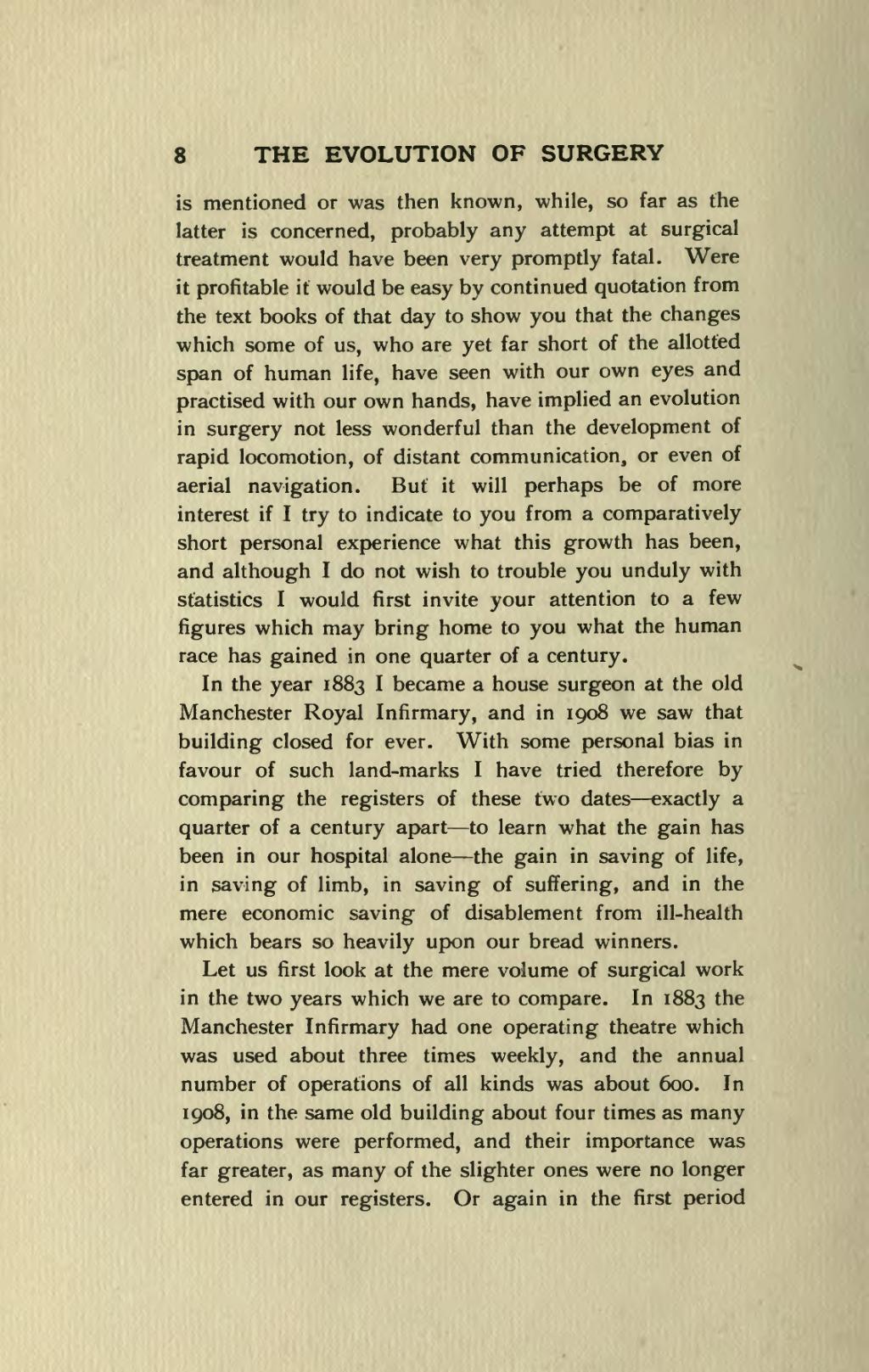is mentioned or was then known, while, so far as the latter is concerned, probably any attempt at surgical treatment would have been very promptly fatal. Were it profitable it would be easy by continued quotation from the text books of that day to show you that the changes which some of us, who are yet far short of the allotted span of human life, have seen with our own eyes and practised with our own hands, have implied an evolution in surgery not less wonderful than the development of rapid locomotion, of distant communication, or even of aerial navigation. But it will perhaps be of more interest if I try to indicate to you from a comparatively short personal experience what this growth has been, and although I do not wish to trouble you unduly with statistics I would first invite your attention to a few figures which may bring home to you what the human race has gained in one quarter of a century.
In the year 1883 I became a house surgeon at the old Manchester Royal Infirmary, and in 1908 we saw that building closed for ever. With some personal bias in favour of such land-marks I have tried therefore by comparing the registers of these two dates—exactly a quarter of a century apart—to learn what the gain has been in our hospital alone—the gain in saving of life, in saving of limb, in saving of suffering, and in the mere economic saving of disablement from ill-health which bears so heavily upon our bread winners.
Let us first look at the mere volume of surgical work in the two years which we are to compare. In 1883 the Manchester Infirmary had one operating theatre which was used about three times weekly, and the annual number of operations of all kinds was about 600. In 1908, in the same old building about four times as many operations were performed, and their importance was far greater, as many of the slighter ones were no longer entered in our registers. Or again in the first period
